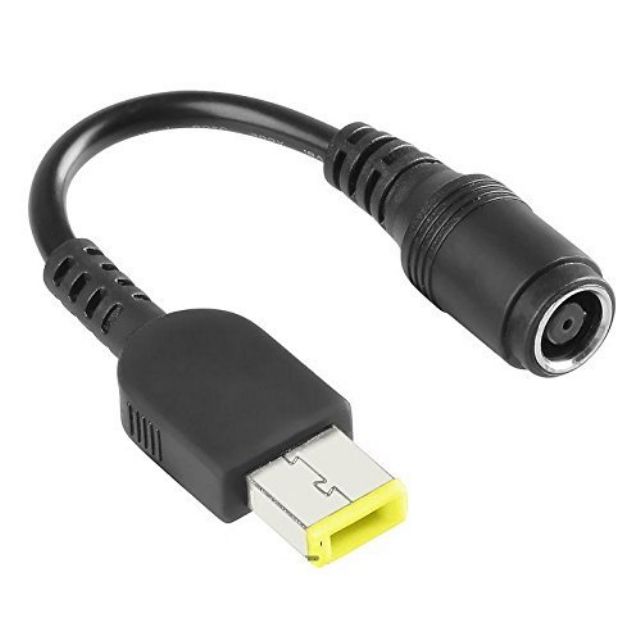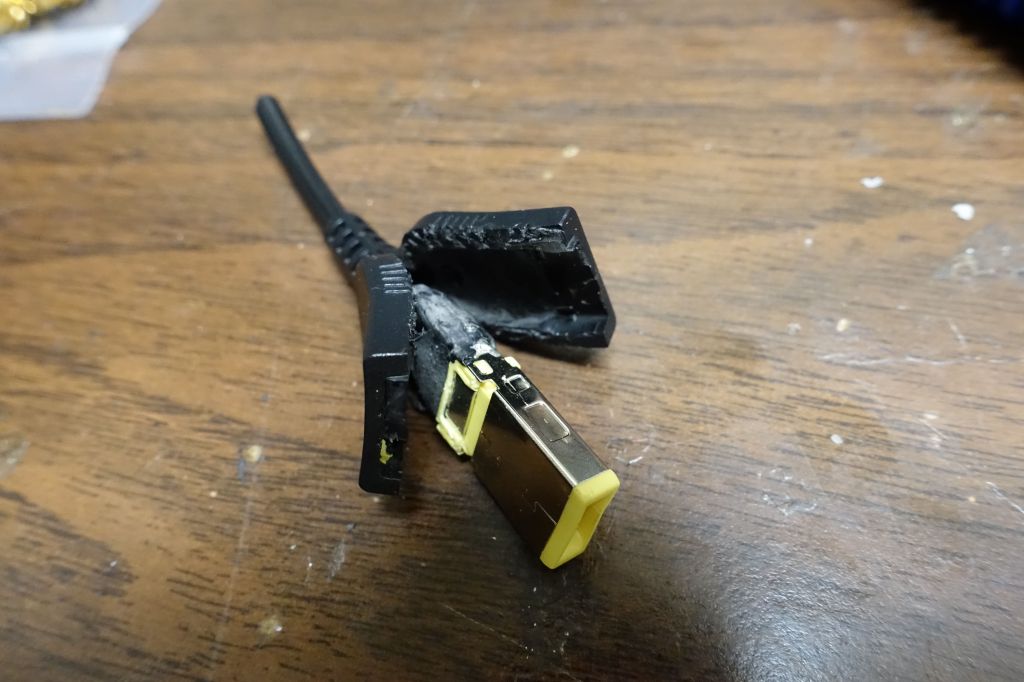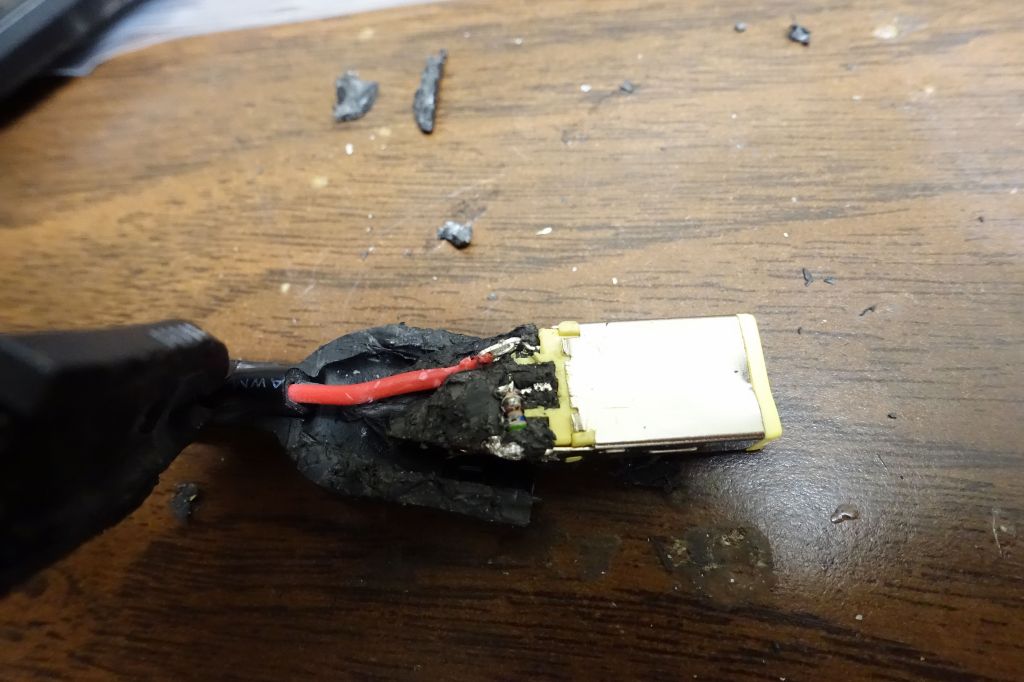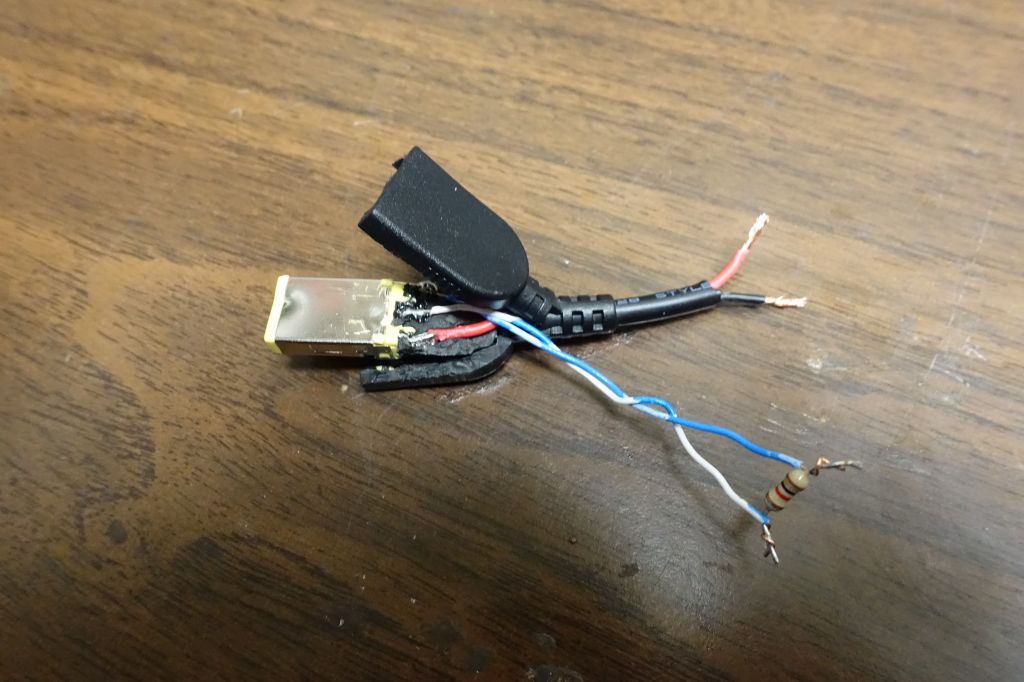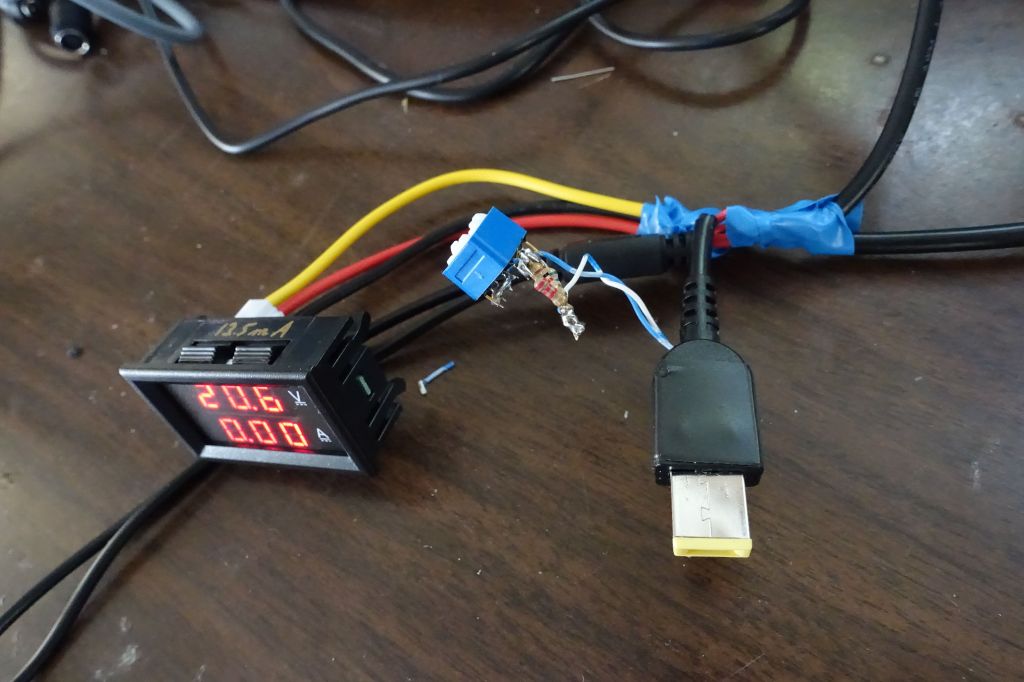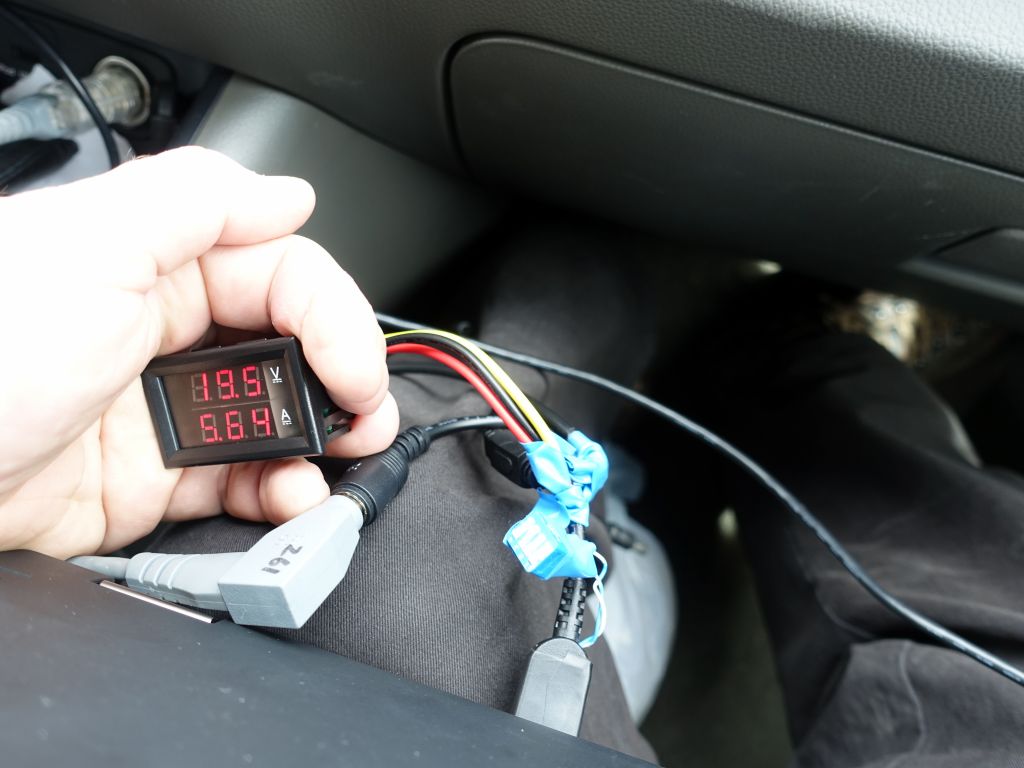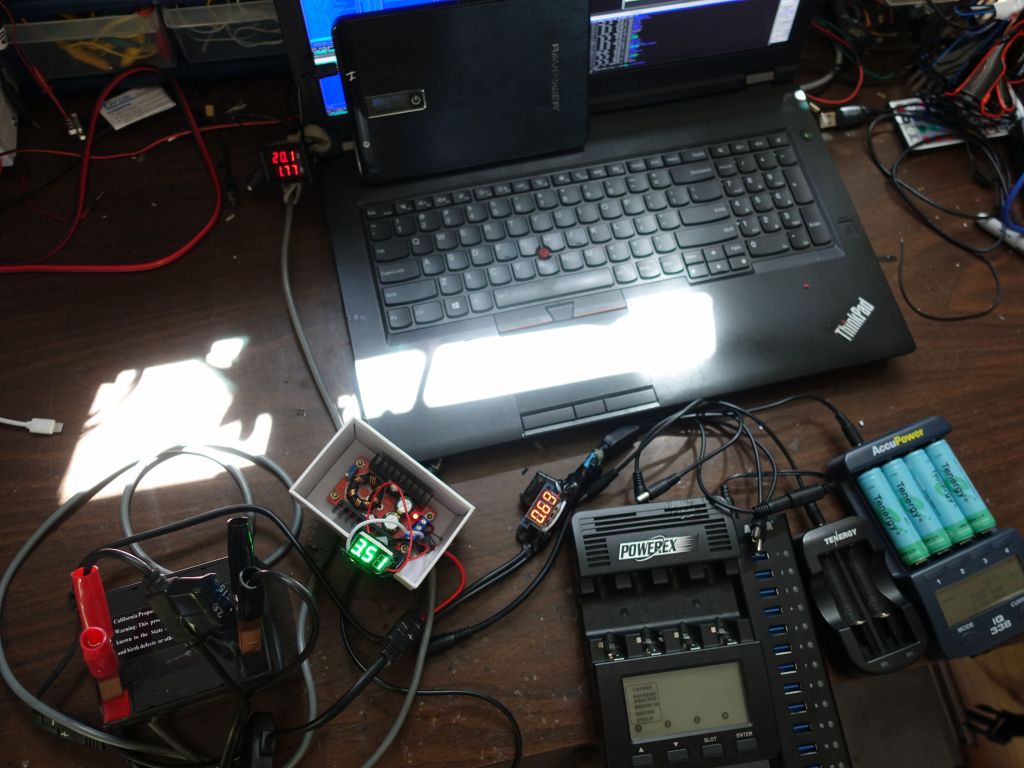However, when I got my thinkpad P70, although it also uses around 25W in typical use, which means plenty of extra wattage on a 90W power supply to charge the battery, the P70 was unfortunately designed not to charge under any condition unless it recognizes a power supply that's at least 135W (it ships with a 170W power supply, and it's a huge monster brick). I'm pretty mad at lenovo for that because they could totally have designed the P70 to charge at a slower rate from a 90W power supply, or at least when the laptop is sleeping, but no, even when it's sleeping, it will just not charge at all. Sadly, this means that the RAVPower 23000mAh Portable Charger Power Bank External Battery Pack I bougght, was able to power the laptop, but not charge it. I guess in this case, it's not a huge issue since energy would be wasted trying to charge the laptop battery instead of just powering it, but still, that was disappointing.
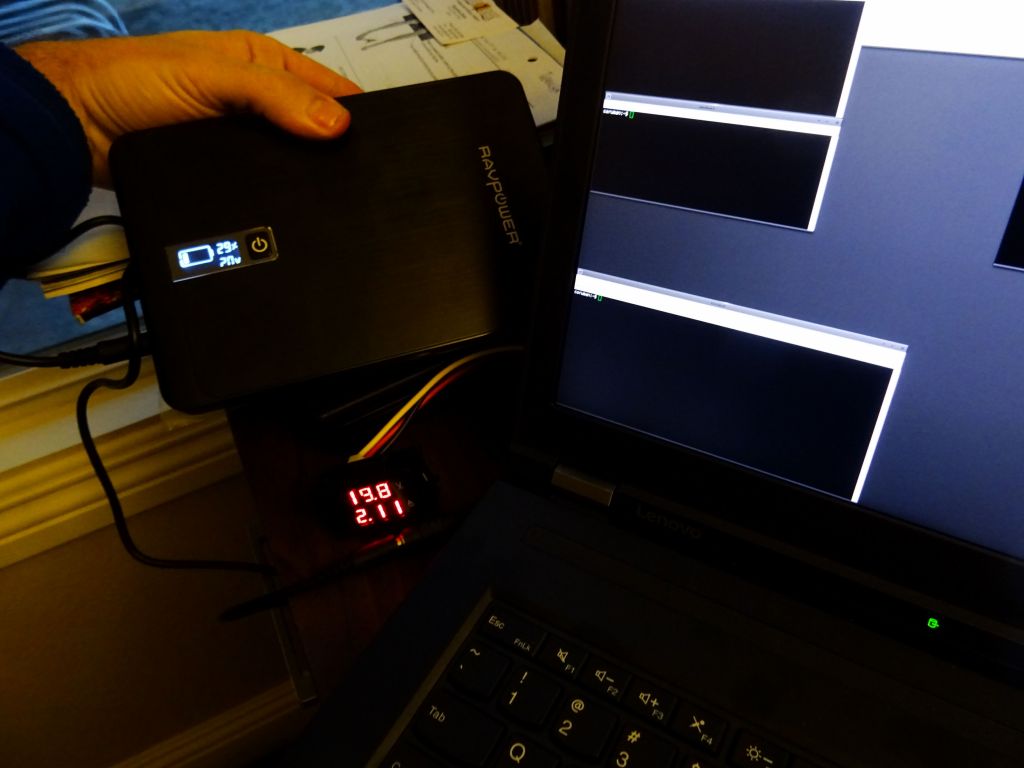
here, the pack is powering my laptop at 20V, 2.1A
The P70 will function off a 90W power supply by just not discharging its battery, and consuming around 1.5A at 20V (i.e. 30W), so that meant that not only I had to buy some bulky 135W power supplies (less bulky than 170W thankfully), but also that I was now unable to use my travel iGo 110W 12V DC power supply, which I use to charge in cars. For AC, I did buy a Lenovo ThinkPad 135W (Slim Tip) Replacement AC Adapter for lenovo ThinkPad T440p 20AN 20AW, Lenovo ThinkPad T540p 20BE 20BF: https://www.amazon.com/gp/product/B00HOMBO0M
But for car use, I was upset about the situation, so I read up and realized I only had to change the resistor in my barrel connector to slimtip adapter and that would likely allow my thinkpad to start charging from my 110W iGo power supply. The hard part was finding where the resistor was since I had to replace a small resistor with a bigger one (the other way around, I could have trivially added a resistor in series).
So, I started with the AC Charger Power Supply Adapter Converter Cable Cord For Lenovo ThinkPad : https://www.amazon.com/gp/product/B00T013J44 and had to find where the resistor was hidden. After cutting the cable in 2, I convfirmed it was on the slimtip side, so I had to take the plug apart until I found it.
After that, it was just a matter of adding a new resistor, and in the end, I added a resistor bridge, so that I could select no resistor, 550 Ohm (90W), 1kOhm (135W), or even 1.9kOhm (170W). For my laptop, though 135W was enough, and my iGo only delivers 110W anyway.
I added a amp/volt meter (RioRand 2in1 4.5-30V 10A Digital Voltage Detector DC Current Volt Amp Meter), so I can tell how much current is flowing and whether I might be exceeding the wattage of the power supply. When my laptop is running, and the battery charging, it's now using 5.6A (just about 110W)
So problem solved. I'm not super happy at Lenovo for having stupidly designed their Thinkpad P70 not to charge from a 90W power supply under any use case, even at reduced speed, or even with the laptop sleeping or off, but since I already had the laptop, I was stuck with it, so this little resistor hack did the trick. Hope this helps someone.
Oh yeah, for car use, instead of this old obsolete iGo brick, I made my own 12V-20V DC-DC converter, and you can read more about it on this page
